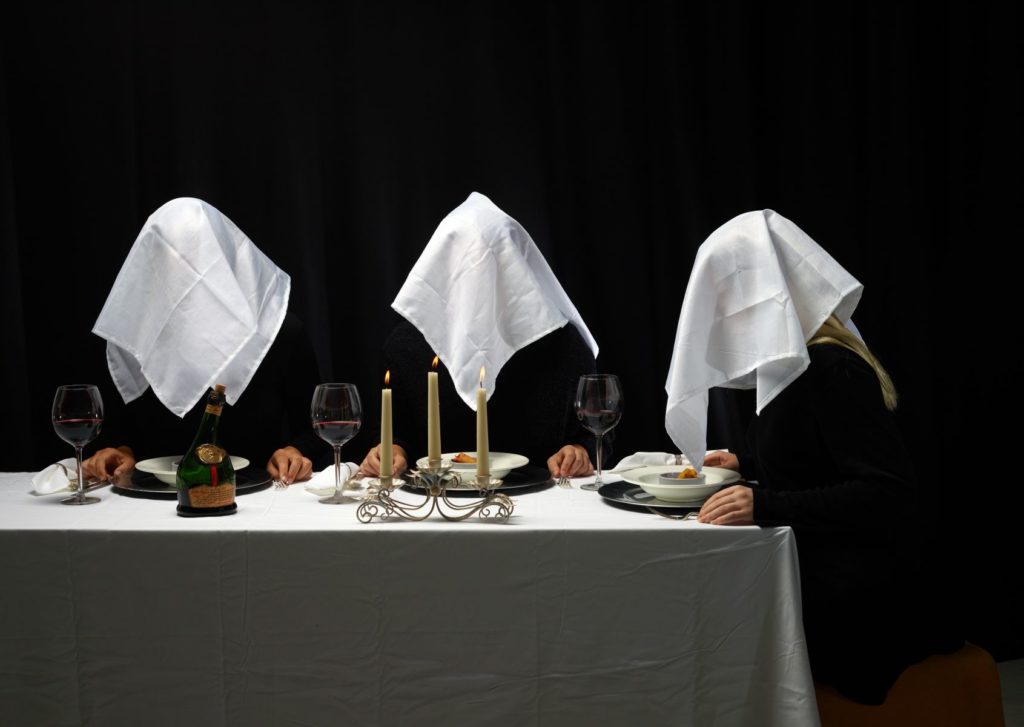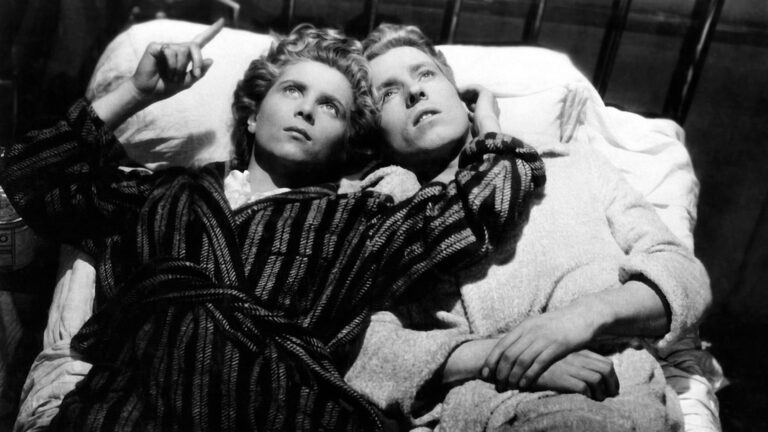
SIN-EATER is a work of ritual music-theatre exploring the nature of power in western civilization through its connection to eating and food. An international collaboration, it was composed by David T. Little (US) directed by Jorinde Keesmaat (NL), and features powerful performances by The Crossing & Donald Nally (US) and Ragazze Quartet (NL). Drawing connections across time, the work includes texts by Jean Anthelme Brillat-Savarin, Stephen Crane, Wilfred Owen, Harold McGee, Anne Elizabeth Moore, Jonathan Swift, and others, using juxtaposition to reveal deeper meaning.
“Tell me what you eat and
I’ll tell you what you are.”
– Jean Anthelme Brillat-Savarin
We would rather not believe that we benefit from the suffering of others, but we all do. Societies are built on the portioning of pain. Those of greater means are able to suffer less, paying others to suffer in their place. One might even argue that this portioning is a foundational principle of western civilization; that it has seeped into the groundwater and nourished the roots of every nation, every empire, and each historic period, with cold hard cash as its faithful servant. SIN-EATER poses the question: how complicit are we each in this portioning, this exploitation?
“By a fortunate coincidence, the methods
of slaughter that result in good quality meat
are also the most humane.”
– Harold McGee
The work is rooted in the history of the Sin-Eater itself: an ancient practice in which bread, placed on the corpse of a person of means, would absorb that person’s sins. A poor “rascal from the outskirts of town” would then be brought in to eat the bread, taking on the sins of the deceased, and allowing them to enter Heaven. Through the lens of this practice, SIN-EATER investigates whom we ask to sin or suffer for us today. Anthropological accounts of the historical practice frame modern reports of first responders, essential workers in medicine and food processing, morgue truck workers, women, soldiers, executioners, social media content moderators, and others; individuals whose jobs, or mere lives, expose them to dangerous or difficult conditions, requiring them to take on lasting trauma as they work to keep us safe, healthy, fed, or blissfully unaware of the dark forces always around us. Indeed, SIN-EATER winds a path through the dark terrains of human experience, shining light on the power differentials we live with every day, so common we no longer see them; seeking a path through disinfecting sunlight toward a better way of being.
“A hundred thousand useless mouths and
backs put to use, and for their own good.”
– after Jonathan Swift

